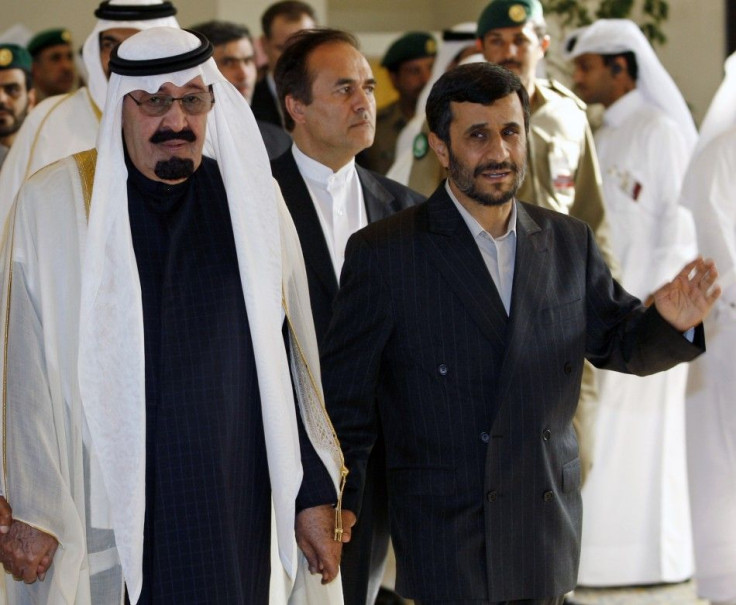Iran?s Popularity Sinks in Arab World, Turkey Rises

Iran's popularity among the Arab countries have plunged over the past decade, while Turkey’s favorability ratings have soared, according to a survey by the Arab American Institute in Washington.
The poll, which was conducted last month in six Arab countries -- Morocco, Egypt, Saudi Arabia, Lebanon, Egypt, Jordan and the United Arab Emirates (UAE) – indicate that Iran, a Shia Muslim power which is developing a nuclear program, is becoming a grave concern to the Arab world.
A majority in each country polled (except Lebanon) thinks Iranian involvement in the Middle East is largely negative.
According to the Zogby poll, Iran’s positive rating is an abysmally low 6 percent in Saudi Arabia. In the other Arab countries surveyed, Iran’s favorability rating ranges between 14 percent and 37 percent. In Lebanon, however, Iran enjoys a positive rating of 63 percent.
Still, as recently as 2006, Iran positive rating ranged between 68 percent and 82 percent.
“It really was rather shocking I thought,” the director of the Arab American Institute, Dr. James Zogby, told Newsmax.
“Even a couple of years ago, people would say, 'Oh, Arab leaders are against Iran, but their people aren’t.'"
Zogby thinks the Arab countries are becoming annoyed and alarmed by Tehran’s constant meddling in their affairs.
For example, Iran has repeatedly criticized Saudi Arabia’s presence in neighboring Bahrain, where the ruling Sunni elite has been brutally quelled an uprising by Shias.
Iran is also friendly with Syria (which is quickly becoming a pariah state) and is also involved with Hezbollah in Lebanon.
The poll also indicated that five of the six Arab countries polled would like to see a nuclear-free Middle East. However, most Lebanese did not share this view. In fact, a majority of Lebanese Shias actually believed that the Middle East would be more secure if Tehran had the bomb.
"It shows Arab leadership is concerned with Iran - but so are Arab people, so the Arab leadership will have to take these sentiments into consideration", Zogby told reporters.
"It's not an exclusive American portfolio anymore, to be concerned about Iranian actions, but for the Arab public, it's not among the top priorities in the region - they are much more worried about the occupation of the Palestinian territories. It's true though that Israel is not the target of Iran, it's the lever that Iran uses in the Arab world. They know that by picking the fight with Israel, it helps them to rally support of their alienated and frustrated public. If there were a peace agreement - Iran wouldn't have any boogey man to play off with - as much as Iran is the convenient boogeyman for Israel".
Meanwhile, Turkey is enjoying high popularity among the Arab nations polled.
Turkey has a favorable rating in Morocco (80 percent), Egypt (64 percent), Jordan (45 percent), Saudi Arabia (98 percent), UAE (62 percent), and Lebanon (93 percent).
Turkey is cited as helping to promote peace and stability to the region.
Indeed, Turkey (which, like Iran, is not an Arab country) has taken more of a leadership role in regional affairs, including mediating with Libya and accepting refugees fleeing Syria.
© Copyright IBTimes 2025. All rights reserved.





















